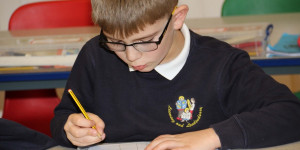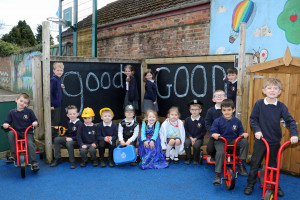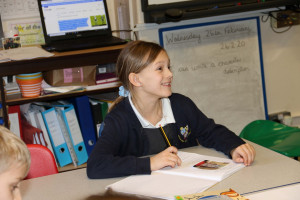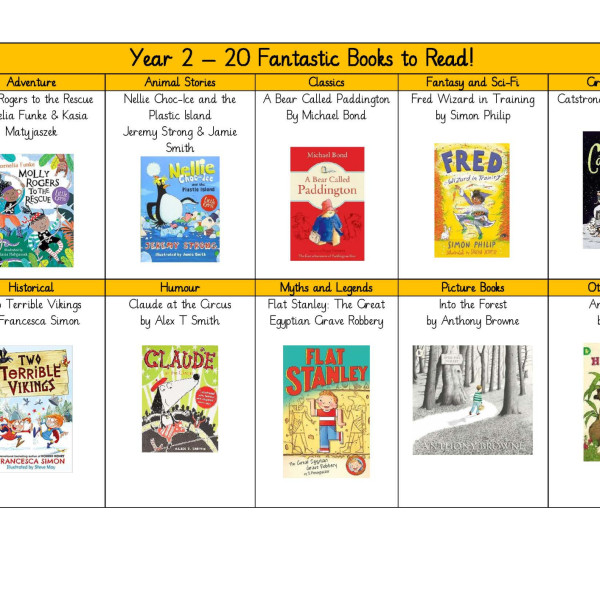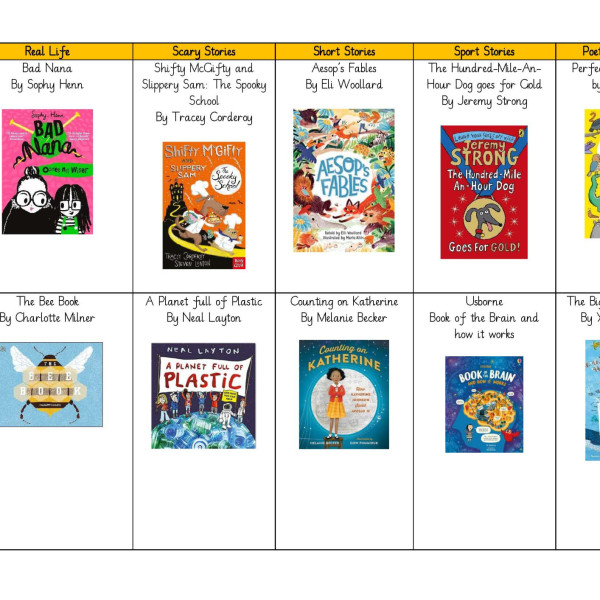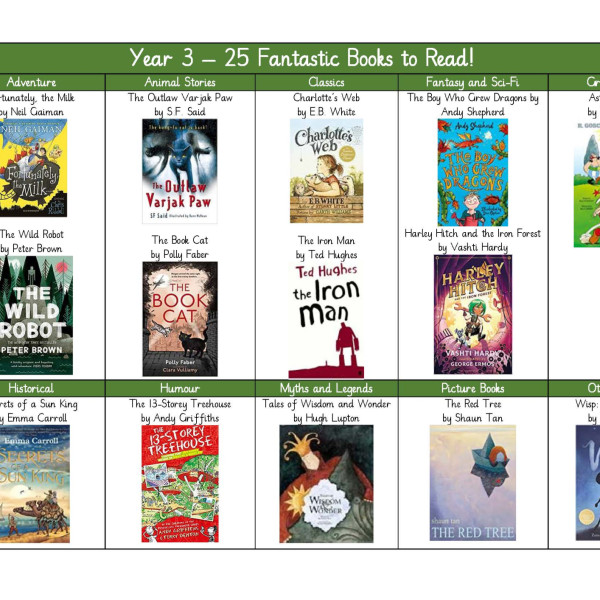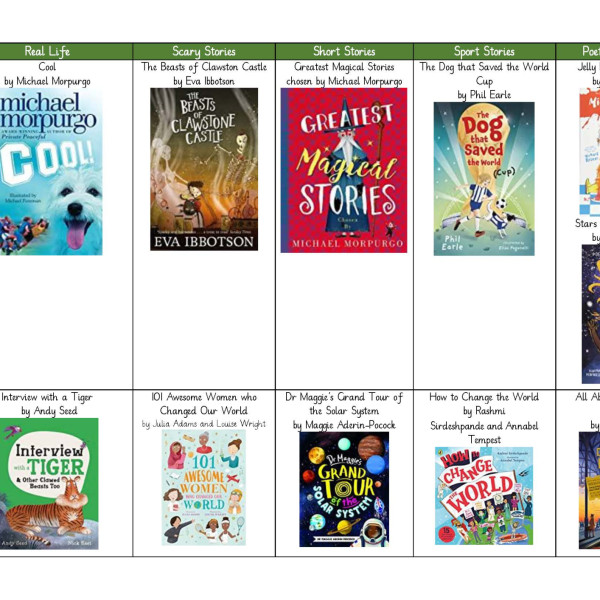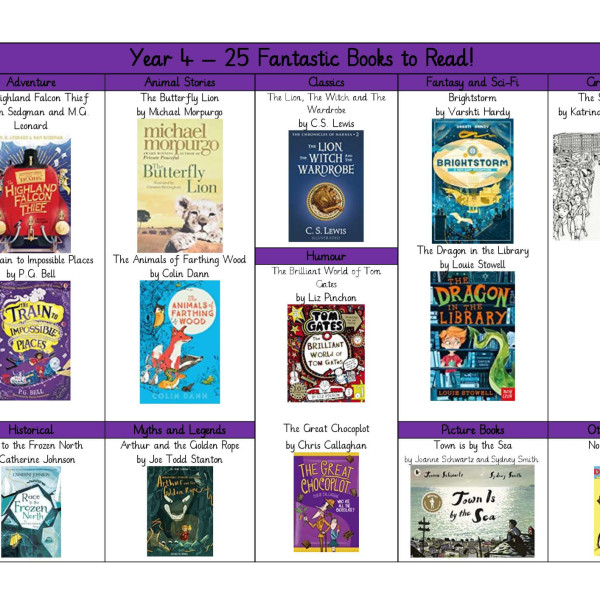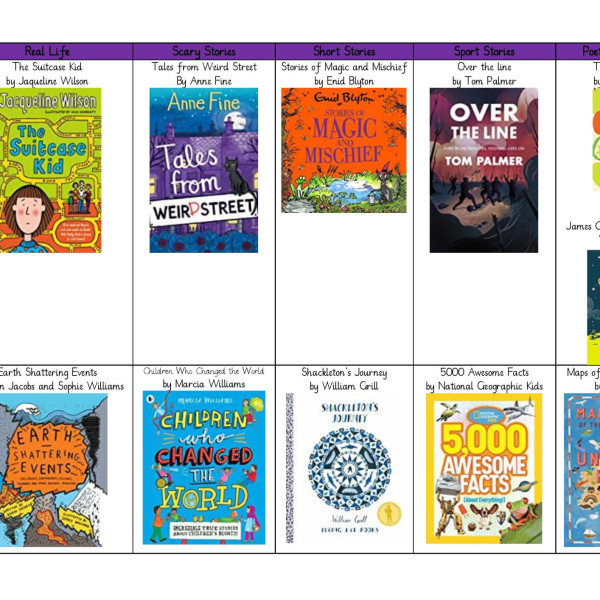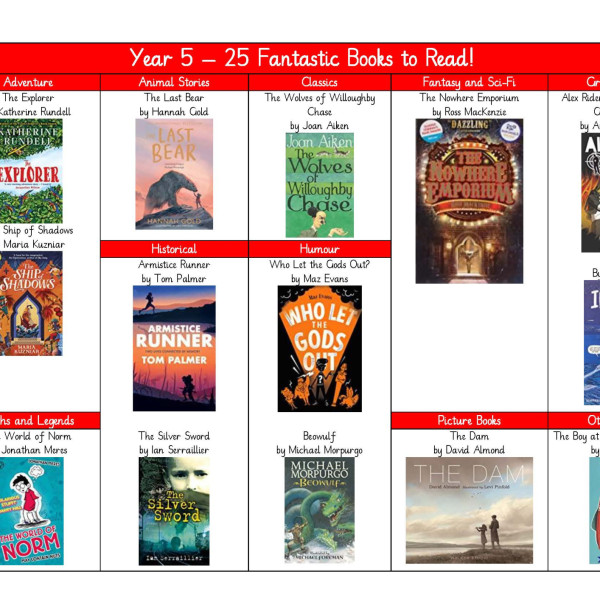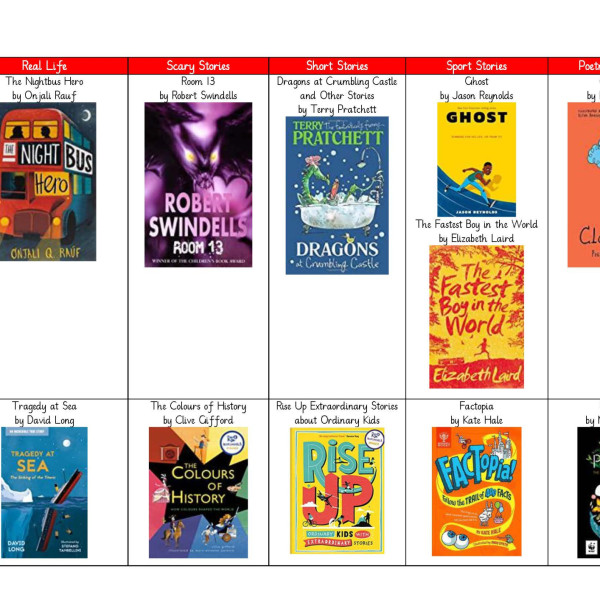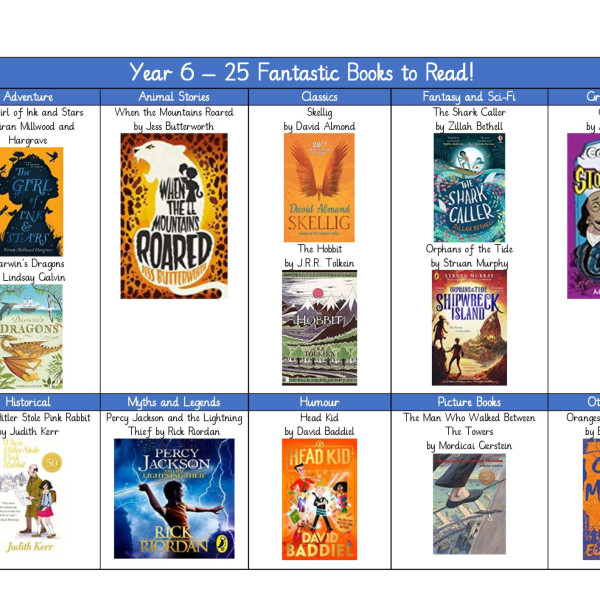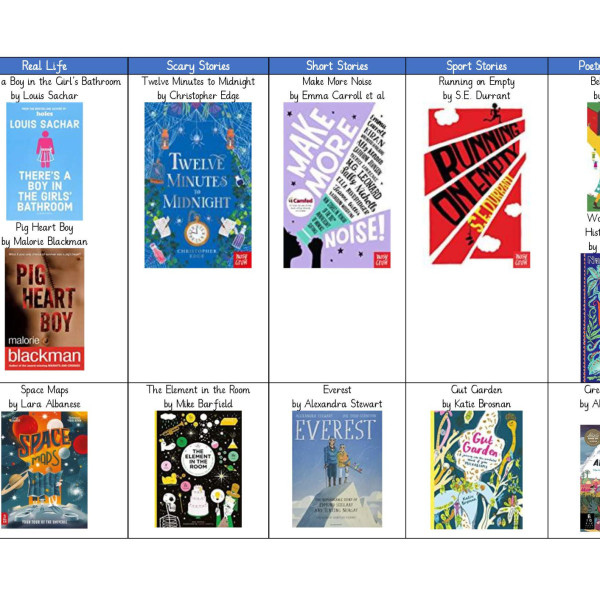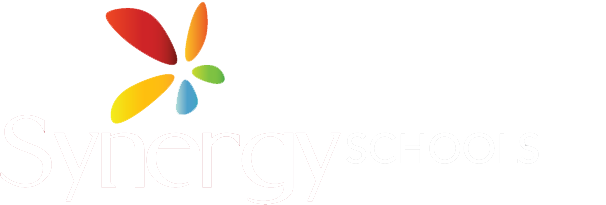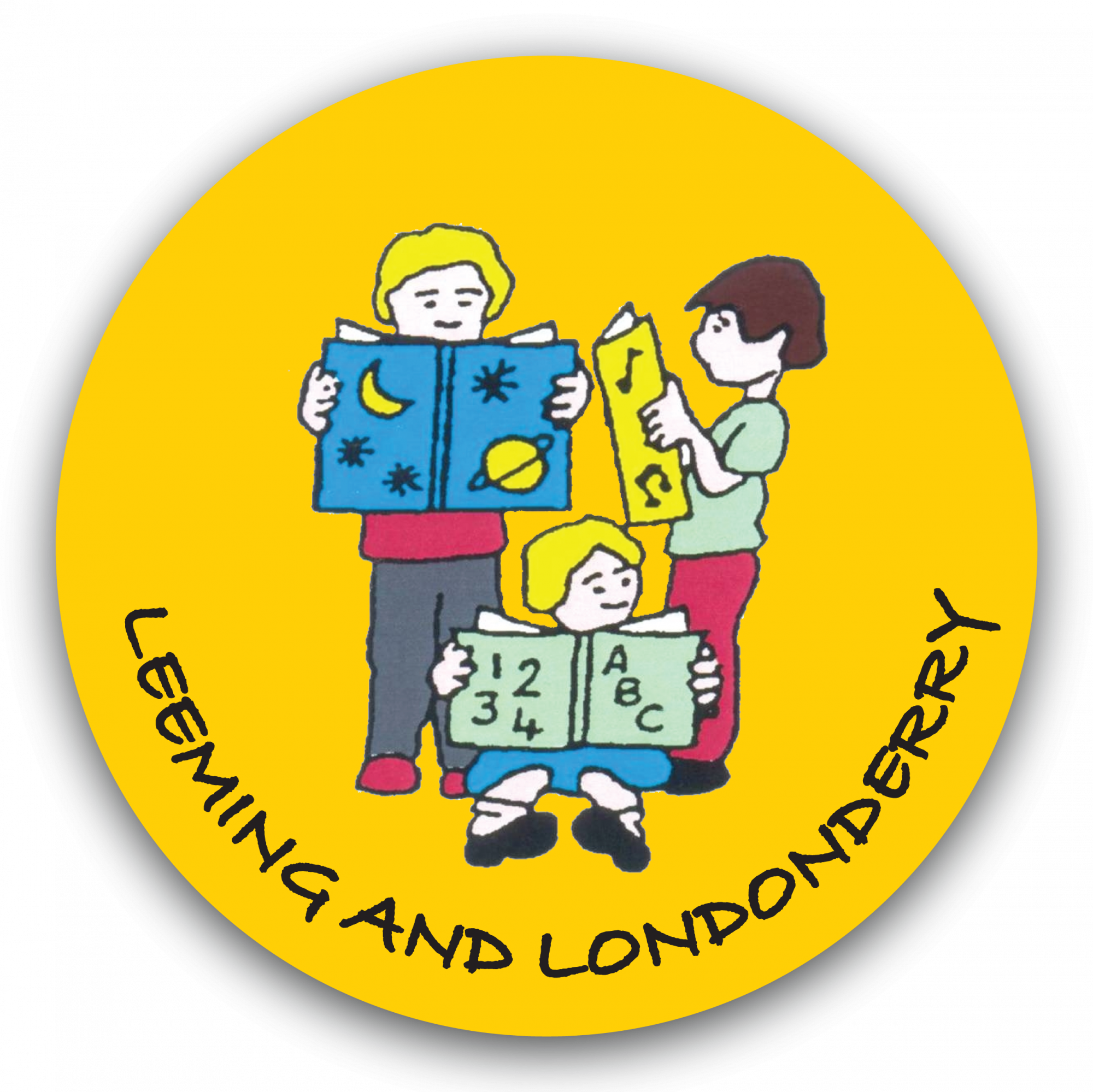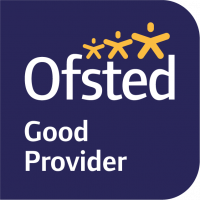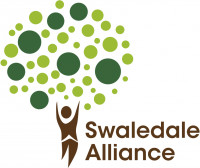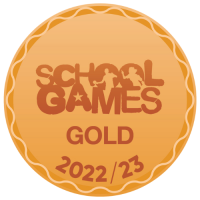Once upon a time, there was a school where reading was at the heart of school life. The school was buzzing with chatter and excitement about books, from the corridors to the playground to the staff room. Casting your eye around the school, you were struck by the cosy reading areas, well stocked library, engaging displays and the sheer variety and number of books that were on offer. Children and teachers alike looked forward to story times where they could enjoy sharing and discussing their favourite books together. At the end of the day, children went home and continued their reading adventures with their families. Success in reading was celebrated at every level and by the time children left primary school they could all read fluently meaning that for them anything was possible…
Reading
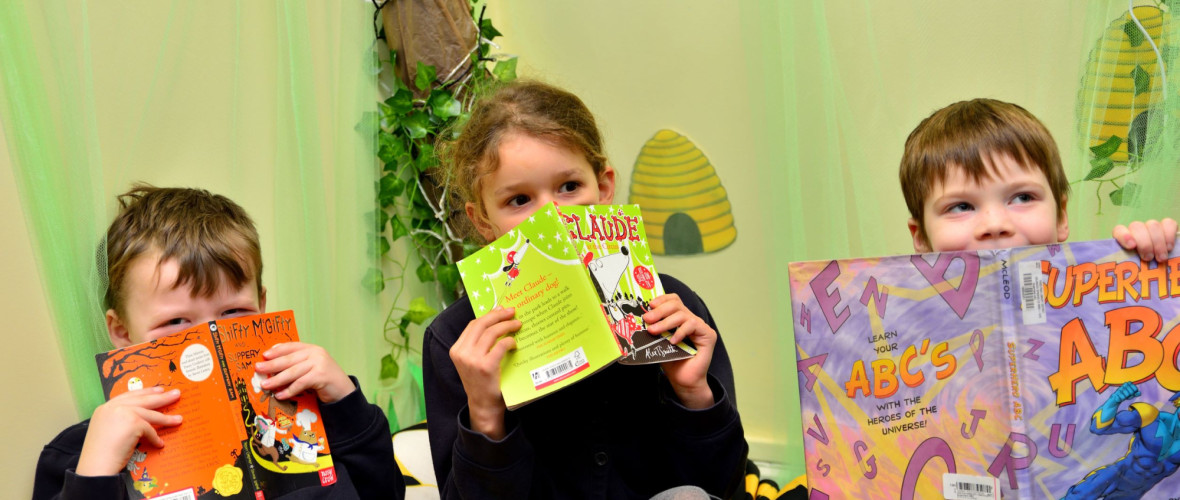 Reading For Pleasure
Reading For Pleasure
At The Synergy Schools Federation we actively encourage reading for pleasure, as well as using Group Reading sessions to progress the children’s reading skills. Celebration Assemblies are used to highlight and reward children who have excelled at their reading or have read widely at home throughout the previous week.
Children are encouraged to share book recommendations and talk about their reading experiences, understanding that their opinions are valued and appreciated. We encourage our school staff to read widely too and have our own Synergy Schools Staff Book Club that meets half termly.
For more information on our Reading for Pleasure ethos, click on the grey titles below.
25 Fantastic Books to read in KS2
Once children are fluent readers, they move from our Little Wandle decodable books to their class reading scheme. This is displayed in each classroom in the class library. This scheme is made up of a diverse range of highly recommended titles, appropriate to each age group, which has been chosen by the class teacher. These are updated based on pupil feedback and the needs and interests of each class. Pupils can read the books in any order. Once they have read one of the titles, they complete a book review and choose a new title. While we expect pupils to work through the titles in the reading scheme over the course of the year, we also encourage children to choose books which follow their own interests too. They may also choose books from the school library or titles from home. Across school, we expect pupils to keep a copy of their reading book close to hand at all times so they can dip into it easily if the opportunity arises!
Click the link for reading inspiration - Y2 to Y6 Independent Reads or view the pictures at the bottom of the page.
Reading for Pleasure - Our School Story
What is our reading vision?
What is our Reading for Pleasure Pedagogy?
Research conducted by The Open University and The UK Literacy Association (UKLA) in 2019, found that a ‘robust Reading for Pleasure pedagogy’ encompasses four practices:
- Reading Aloud
- Informal book talk and recommendations
- Independent reading time
- A highly social reading environment
In addition to this, the research also found that Reading for Pleasure pedagogy must be explicitly planned for and be:
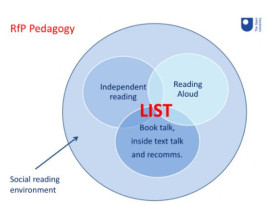
Learner-led
Informal
Social
and supported by
Texts that Tempt
You can find out much more about this fascinating and ongoing research here: https://ourfp.org/reading-for-pleasure-pedagogy/
At Leeming and Londonderry Community Primary School, we have used this research to inform our own Reading for Pleasure to pedagogy so that we can best support all our pupils to develop a lifelong love of reading.
How do we provide opportunities for reading aloud?
Reading aloud to children enables them to process challenging content, text features and vocabulary – even in subjects not normally associated with reading aloud, such as science and technology
Heisley and Kukan, 2010
Time to read aloud is found every day. Whether reading a story book, news article or poetry, it’s a wonderful opportunity for staff to offer a model for independent reading and to demonstrate their own enthusiasm for books.
Each class has a class reader, which provides more challenge than texts children could access independently. These texts are shared purely for enjoyment and are uninterrupted by frequent questioning. Children are often involved in selecting their class reader, through a vote based on book covers or blurbs, though teachers may select a particular text they want to highlight. Having a class repertoire of texts in common helps to promote ‘book talk’ amongst pupils and helps to expand children’s reading horizons.
It is not only class teachers who read aloud to their own class, once a month staff swap classes and share a favourite text with a different year group. You will also often find someone reading aloud in the hall during lunchtimes and our dedicated Reading Ambassadors also enjoy visiting our younger children to read them stories and are excellent book buddies!
Reading aloud is encouraged at home as well as at school, and children in Reception and KS1 take home a ‘sharing book’ for their parents or carers to read to them in addition to a decodable book.
How do we encourage informal book talk?
Changes in our concept of reading since 2000 have led to an expanded definition of reading literacy, which recognises motivational and behavioural characteristics of reading alongside cognitive characteristics.
OECD, 2016
Reading needs to be vocal as well as visible. By encouraging our children to talk to each other about their current reading, we hope to create a culture which will enable spontaneous child-led text talk.
We recognise that as educators, it is our responsibility to try and keep up to date with new publications in children’s literature so we can provide children with recommendations tailored to their interests.
As new books are being released all the time, our work will never be finished! However, some great starting point include our termly Synergy Schools Reading Newsletter and the following links:
- Great-books-guide-Booktrust.pdf
- 100 best books for children
- Oxford Owl Book match T
- Teachers' Reading Recommendations
- UKLA-Teachers Book Awards
- Waterstones-childrens-book-prize
- Blue-Peter-book-awards
- Monthly Top Texts
- Poetry Line
- Free magazines-and-newspapers-for-children-and-teenagers
… and our best source of all, getting recommendations from our pupil and our colleagues!
When do children read independently?
The will to read influences the skill and vice versa
OECD, 2010
At Leeming and Londonderry Community Primary School, we build in as many opportunities for reading as possible within our school day, both for purpose and for pleasure. For children to develop as self-reliant readers, they need to be able to select a book and sustain their concentration. With a reported decrease in the time children spend reading at home, it is especially important that children can read for a sustained period at school.
DEAR – Drop Everything And Read!
If you visit our school between 9.00 – 9.15 you will find every class engaged in a reading activity – what better way to start the school day?! For the younger children, this may be an SSP (phonics) input or Group Reading session. Whilst in KS2, children will be engaged in independent reading - don’t be surprised if you spot the class teacher reading their own book too as they are all active reading role models!
In Reception and KS1 children are encouraged to read independently through the provision of attractive and welcoming book corners with a range of texts displayed for children to help themselves too. The children are encouraged to handle books carefully and try to retell familiar stories to their friends or to toys, using the pictures as prompts.
How do we make our school a highly social reading environment?
We know that certain elements promote a love of reading, which include freedom to choose reading materials; a print-rich environment; access to a variety of texts; time for reading in school; encouragement to readers; and quiet, comfortable places to read.
National Literacy Trust, 2006
Reading displays (and areas) can be powerful and provide a focus for favourite books, reading recommendations and reading behaviours. As well as being aesthetically pleasing, we recognise that reading displays should be purposeful and the children should have some ownership of them. For example, by being involved in the creative process or by adding to displays with post-its or reviews.
In our reading areas, books are accessible, appealing, and changed often. Where appropriate, they are organised and labelled by genre or even author. It’s important for children to realise that reading is linked to everything, so you may also find books within the continuous provision in Early Years, or to support Maths, Science or contexts in other classrooms.
Reading can happen anywhere! We are working on making our school a reading-rich environment and giving children opportunities to read beyond the classroom, whether in the hall, library, playground or even in the "outdoor schools".
How do we make reading 'learner led'
Reading for pleasure is more closely associated with intrinsic motivation; it is reading that children do for themselves at their own pace, with whom they choose and in their own way.
Cremin et al., 2019
By being learner-led, our reading for pleasure pedagogy allows children to exercise their rights as readers. We understand that children need the chance to build their stamina as readers but will only do so if they want to read.
We give our children opportunities to:
- select what we read in class
- choose a book to take home
- ask for new books for our school
- read in different places
How do we provide opportunities for reading to be ‘informal’ as well as taught?
In schools that have success with their pupils’ reading, teachers read, talk with enthusiasm and recommend books, the results of which are seen not only in test results but also in an enthusiasm for reading which extends beyond the classroom.
Excellence in English, Ofsted, 2011
To nurture readers for life, it is essential that as a school staff we position ourselves as fellow readers. Walking through the school you will find displays that demonstrate ‘we read too’. Although reading skills such as inference and understanding of vocabulary are important and are taught discretely in reading lessons – it’s equally as important that we value our pupil’s personal thoughts, feelings and views on books. We achieve this through seizing informal opportunities, such as:
- Engaging in ‘book blether’ at playtimes, lunchtime, when walking through the school etc.
- Through our Reading Ambassadors who love chatting to their peers
- Asking our children for recommendations for us – it’s a two-way process!
- Modelling book talk amongst staff – did you know we have our own staff book club?
- Walking around school holding a book to prompt discussion
How do we make reading social?
Beyond being able to read, having the emotional motivation to do so is important. There is a virtuous cycle in which the more a person reads the better a reader they become. The better a reader they become the more they enjoy reading. The more they enjoy reading the more they read.
Willingham, D., 2017
Reading for pleasure is a social process so it is important to create a community of readers around children with whom they can have reciprocal conversations about books.
We celebrate reading as a school weekly during Celebration Assembly when we announce the winners of our reading raffle.
At present, our priority is building our own in-school reading community. Once that is established, we hope to widen our reading community to include parents and carers who we hope will be drawn in by their children’s own engagement. We look forward to when it is safe to invite our school families into school and share good reading practice with them and demonstrate quality ‘book talk’.
How do we ensure children have the opportunity to read ‘texts that tempt?’
If you don't like to read, you haven't found the right book.
JK Rowling
It’s vital to ensure that children have access to a wide range of texts and reading opportunities, such as:
- Non-Fiction texts
- Poetry
- Audiobooks
- Magazines, newspapers, comics, graphic novels
- Books with characters that reflect all the children in the school and include stories from other cultures
- A range of genres; fantasy, mystery, classics, adventure etc.
- Wordless books
Our teachers have created a ‘book spine’ of 25 fantastic books that children should read in each year group. These texts have been carefully selected to ensure that they represent a diverse range of books (as referenced in the list above) as well as a clear progression in complexity of text as children move up through the school. Lists may also feature one or two ‘key authors’ who will be revisited throughout the year.
Reading Raffle
Reading Raffle
What is the Reading Raffle?
- Children are awarded reading raffle tickets for displaying great reading skills, reading regularly at home and for displaying a love of reading.
- The raffle tickets are entered into a weekly draw where the prizes are a range of fabulous books.
- 6 winners from across FS, KS1 and KS2 are selected during Celebration Assembly on Friday morning.
- The winners can choose their very own book to take home.
- The more tickets you earn, the more likely you are to win a book prize!
How can children earn a raffle ticket?
- From reading regularly at home - whether decodable books, story books, non-fiction books, e-books, audio books etc... it's all great reading practice! You can help to record this by making notes in your child's Homework Diary or encouraging your child to do so themselves. We love hearing about what you have been reading at home.
- By demonstrating their love of reading e.g. by sharing book recommendations with their friends/class/teachers - we can't get enough of quality book chat!
- Taking part enthusiastically in reading/phonics lessons in school.
Reading Progression Document
Click on the link below for our progression document:
